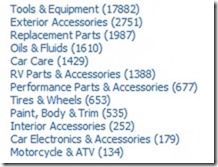Social media is, by nature, a digital conversation. When you share something – whether it’s a status update, a quote, an article or a video – it’s meant for others to see and engage with.
If your friends or fans on Facebook have hidden you, its because you’re doing something wrong. Maybe you’re posting too much. Maybe the content you are posting is irrelevant or uninteresting to your audience. Maybe you’re content is offensive.
There are many reasons why people choose to “hide” a person rather than simply unfriend them. I would say the main one is that they don’t want to hurt your feelings (in the case of a person) or, perhaps, offend someone at a business by not showing support by “liking” their business.
Facebook doesn’t tell you who has hidden you so you really don’t know if what you’re posting is being seen by others or not unless they engage with your content in some way. Having low engagement on Facebook doesn’t necessarily mean nobody is seeing your posts. It may just mean that nobody cares or is interested in your content. (Caveat: If you have a PAGE, you can see how many times your content appeared in your fans newsfeeds. A very good reason for businesses to have pages versus profiles.)
On the opposite end of the spectrum, a Facebook user who never engages with their network is sending them the same message – I don’t care.
If you go to a party, and everyone ignores you but you continue to talk, you are just talking to yourself.
Not everyone is at the same party. Most Facebook users are at a party that has, on average, 150 people in attendance. Others are at a party of thousands. The “host” (Facebook) tries to determine which people have the best chance at interaction and attempts to encourage conversation (newsfeed filtering) but its not perfect. You can’t talk to everyone at the party regardless of whether the party you are at has 150 or 5,000 people in attendance.
Follow real life etiquette in a social network. Talk about common interests. Be yourself. Share your life. Share who you are.
Engage your audience.
Don’t automate your Facebook content. Don’t become a quote factory. Don’t be a broken record of sales pitches.
You don’t go to a party, run around the room and only share quotes nor do you go up to each person and tell them you’re having a sale this weekend or that they should buy whatever you’re selling.
If you do, you’ll end up talking to yourself.
To Be Continued

